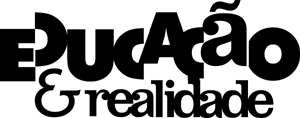With this article we want to contribute to moving the pedagogical debate about citizenship education beyond what we characterized in previous work as the impasse of idealized perspectives (Fischman; Haas, 2012). Our argument rests on two main ideas: First, the notion of citizen informing citizenship education programs is narrowly defined based on narratives of nationally bounded membership. Such narratives are no longer adequate for understanding the complex relationships between citizenship and education (if they ever were) because they do not consider the contemporary political, economic, social, and demographic changes related to the loosely defined, but very influential, processes of globalization. Second, and perhaps more importantly, an overemphasis on models of rationality related to the Cartesian tradition of cogito ergo sum - and of human actors as purely conscious beings - offers an overly idealistic and educationally impractical model of citizenship education. We begin with a brief presentation of some of the most frequently used models of understanding the relationships between citizenship and education and their shortcomings. Then, the next section introduces the concept of embodied cognition and the relevance of metaphors and prototypes in understanding citizenship. We conclude with some notes on going beyond idealized models of citizenship education.
Schooling; Citizenship Education; Embodied Cognition; Metaphors
